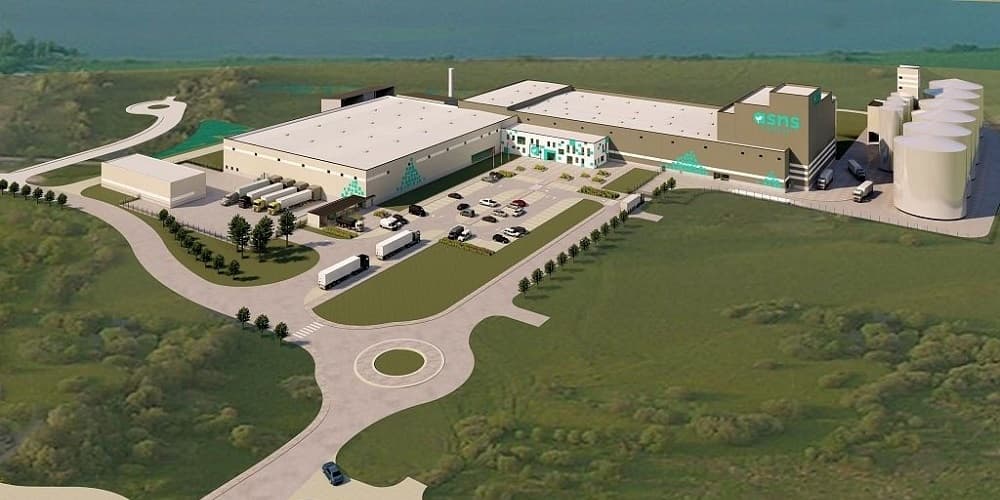Construction of a new pea protein factory underway in Jelgava

Active construction work has commenced at the site of the new ASNS Ingredient pea protein factory in Jelgava, which is scheduled to be completed in summer of this year. The current phase of works includes the installation of external networks, driving piles and laying of concrete foundations. The first building in the complex – the warehouse for the final product – is set to be completed in May, while construction of the rest of the facility will be finished by the end of summer. In late summer, the factory will receive equipment and machinery from Europe and the United States and begin its assembly.
The majority of the equipment has been custom designed for the factory and the installation process will be complex and time-consuming, and as a result more time will also be needed for testing the equipment and preparing it for operation. German engineering company Endeco oversees the technological design of the factory.
It has taken six years from the initial idea of creating a factory to the actual construction. “The technologies used in the factory are extremely complex, therefore their development and engineering took a long time. Attracting investors also took time. The project requires a great deal of financing with the total capital investment exceeding EUR 100 million,” Edgars Ruža, Member of the Board at ASNS Ingredient, explains.
Contractor Bukoteks commenced the construction work at the factory site at Prohorova iela 13 right after Christmas. Work is going according to schedule: the first step of amelioration has been completed and the second step – laying the foundations of the building – has started. With the weather warming up, driving of piles will resume with a total of 240 piles to be driven at the site for the construction of this project.

The new pea protein factory will be an important step for the plant protein or meat and dairy substitute industry in Latvia. “Globally, the industry is growing rapidly as the demand for alternative protein is increasing. We hope that this project will promote the involvement of start-ups and even international players in the industry in Latvia,” Mr Ruža notes.
Demand for plant protein is on the rise around the world as consumers are increasingly shifting to more sustainable and healthy diet habits. Pea protein is one of the most nutritious protein sources which can replace animal products in various food segments: from meat and dairy alternatives to sports nutrition and vegan products. The European Union Green Deal is placing an increasing focus on sustainable food production which reduces environmental impact and promotes development of alternative proteins.
For the agriculture sector this means seeking the most efficient plant-based protein sources, and pea protein isolate is rising to the top of the list of such solutions. It is widely sought after in the global market and its production opens new export opportunities. Pea protein isolate is used not only in food production, but also various other industries that require pure and high-quality protein. Peas have been recognised as one of the best-suited protein cultures for our climate.
The total investments in the new ASNS Ingredients factory are EUR 114 million. The factory is scheduled to commence industrial operation in early 2027. This project will not only significantly contribute to the economy of Latvia and its exports, but it will also create more than 70 new jobs and boost several other service industries.
The company notes that the factory in Jelgava will be the most advanced factory of this type in the world providing both the local and international markets with high-quality plant-based proteins.
